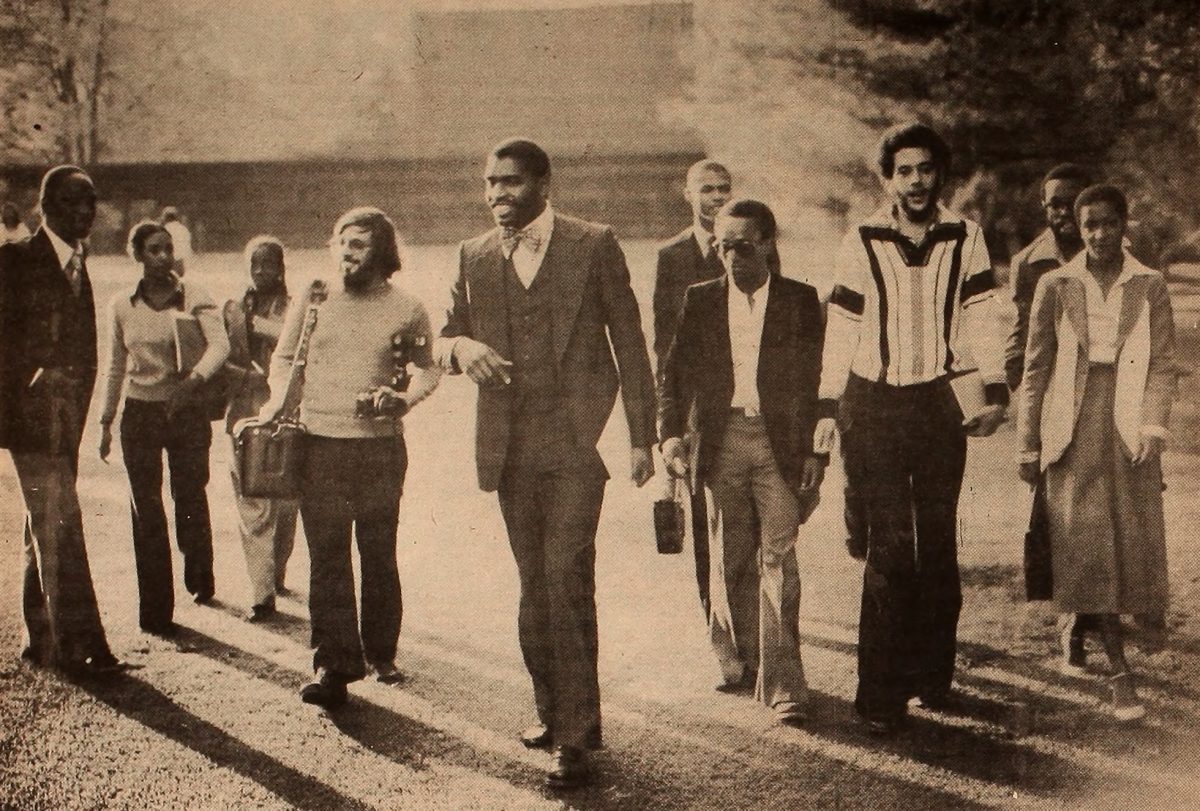
Hundreds filled the University of Massachusetts’ Student Union Ballroom past capacity on Thursday to hear a lecture by French economist Thomas Piketty. Seats were filled, and the walls were lined with spectators all waiting to hear Piketty speak on austerity, world tax structures and his No. 1 best-selling book, “Capital in the 21st Century.” Introductions by Provost Katherine Newman, as well as economics department Chair Michael Ash, preceded the speech.
“This is an amazing gathering,” Newman said. “How often do you see a crowd like this to have a serious discussion in economics? It does not happen every day. We are thrilled.”
Ash defined Piketty as, “The man who coined the term 1 percent.”
“My book is primarily about the history of wealth and income distribution,” Piketty said. In fact, “Capital in the 21st century,” studies global dynamics of income and wealth inequality in over 20 countries, going back as far as the 1700s.
Piketty’s presentation centered on three main points: the return of a patrimonial society in Europe and Japan; the future of wealth concentration and income inequality in the United States.
The first two points were addressed briefly before American economics dominated the lecture. However, the world-renowned economist hit some key points on the rest of the world.
“Under plausible assumptions, wealth concentration might reach or surpass 19th-century levels,” Piketty said.
While this may sound like a good thing, Piketty said the feudal monarchies of Europe and Japan held wealth in their country that would make Wall Street executives jealous when adjusted for inflation.
Essentially, Piketty’s point was that the capitalist system designed to replace monarchies is no longer doing a better job – the rich are actually getting richer than the kings used to be.
Not all of Piketty’s comments on the world economy were negative, however. He said the middle class in Europe has gotten three times as rich as it was in 1930. And that is adjusted for inflation as well. Standards of living have drastically improved for most employed, educated people in the west. This led Piketty into a greater point about the United States – Americans are way too pessimistic about the economy.
“The good news is rich countries like America are still rich. America is still the strongest economy in the world. It is the government that is poor,” Piketty said, referring to the skyrocketing national debt, which currently stands upwards of $17 trillion.
Piketty went onto explain that the national debt isn’t well understood by Americans, or anyone else for that matter. When considering a government’s net wealth, one needs to consider its assets. Although the United States holds more debt than any other nation, it also possesses the most assets.
Piketty’s research went on to show that if the U.S. leveraged its assets against its debt, it would actually be in the black. This term means there is a financial statement that ends with a positive assessment. If everything owned by the government was sold — schools, post offices and military bases — the country could pay off the debt and actually make a profit.
“(The United States) could do the same just by selling of one-fifth of all private wealth, ” he said, meaning that if the U.S. realistically wants to pay off its debt, it would need to take 20 cents from every dollar owned by citizens in the U.S. to do it.
After the lecture, Piketty took time for book signings. He also took questions on many subjects, including what should be done with the revenue that a progressive tax would generate.
“It depends on the country. There are countries like France for instance that have more revenue than other welfare states in Europe. And here I would probably use the revenue to lower the labor tax,” Piketty said. “In countries where the welfare state is less developed, like in the US or in Japan or China, I would use progressive tax revenue there instead. The answer really depends on the country, but the money must be used to fight income inequality.”
William Keve can be reached at [email protected].


















